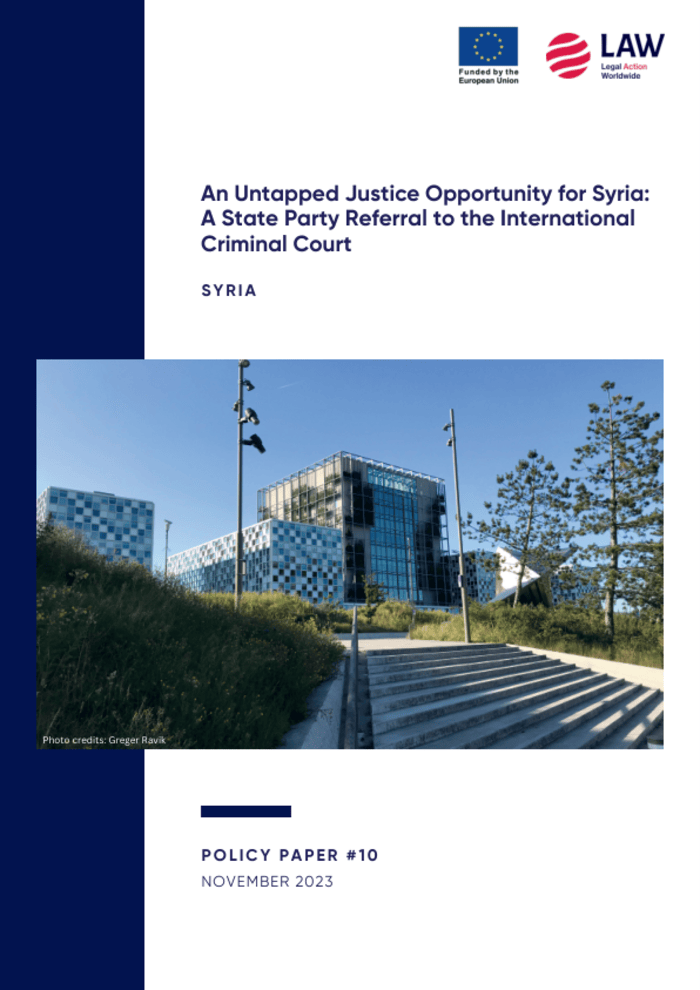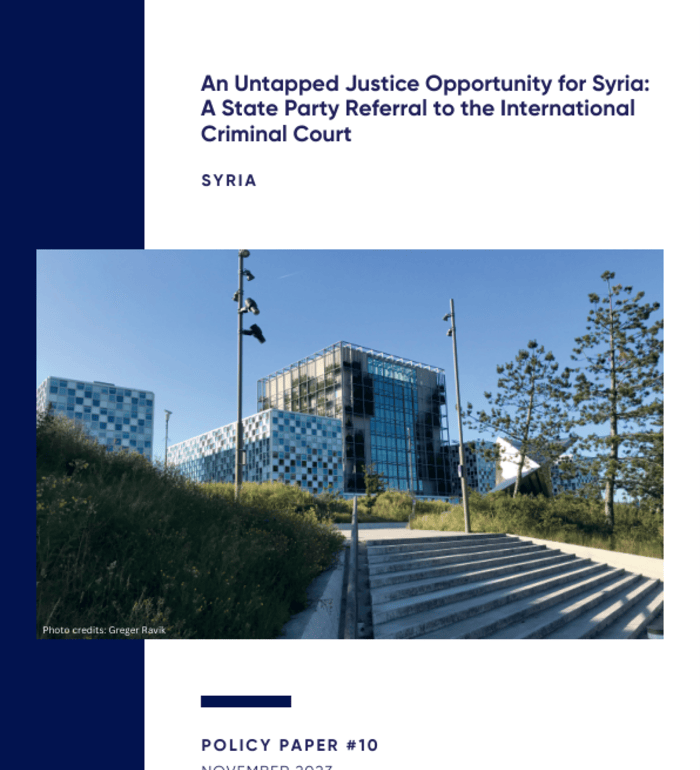
An Untapped Justice Opportunity for Syria: A State Party Referral to the International Criminal Court
Policy Paper #10
For over twelve years, the international criminal justice system has not protected or achieved accountability for Syrian victims of crimes against humanity. Impunity persists for high-level Syrian officials responsible for these crimes, despite minor victories convicting low-level officials in domestic courts under the principle of universal jurisdiction. The International Criminal Court, which has the legal mandate to prosecute high-level officials, has been viewed as inaccessible for Syrian victims due to the incorrect belief that the Court lacks territorial jurisdiction.
Syrian victims argue that they should enjoy access to the Court under the same legal terms as Rohingya victims; namely, that the criminal conduct is taking place on the territory of a State Party. The ICC investigation of the Rohingya situation began despite Myanmar (like Syria) not being a State Party because Bangladesh (like Jordan) is a State Party, and hundreds of thousands of Rohingya were deported from Myanmar into Bangladesh. Like the Rohingya, hundreds of thousands of Syrians are victims of transboundary crimes – crimes having a cross-border element – with at least part of the crimes taking place on the territory of Jordan.
States Parties to the Rome Statute are in a unique position to deliver justice for Syrian victims. In this moment, they can make a real difference to the lives of hundreds of thousands of victims, who still yearn for an international investigation despite a years long struggle for recognition. They can do this by using the power given to them under Article 14 of the Rome Statute to make referrals to the Office of the Prosecutor of the ICC. The grounds for a referral exist. In particular, the ICC has jurisdiction over international crimes associated with the Syrian conflict that occurred at least in part on the territory of Jordan, a State Party. Crimes against humanity within the ICC’s jurisdiction include deportation, persecution (on gender, political, ethnic and/or religious grounds), as well as other inhumane acts. Securing an international investigation of these crimes will not only give victims the recognition they deserve but strike a significant blow in the global fight against impunity.
Read LAW’s Policy Brief “An Untapped Justice Opportunity for Syria: A State Party Referral to the International Criminal Court” for more information.
This post was originally published on this site be sure to check out more of their content.









